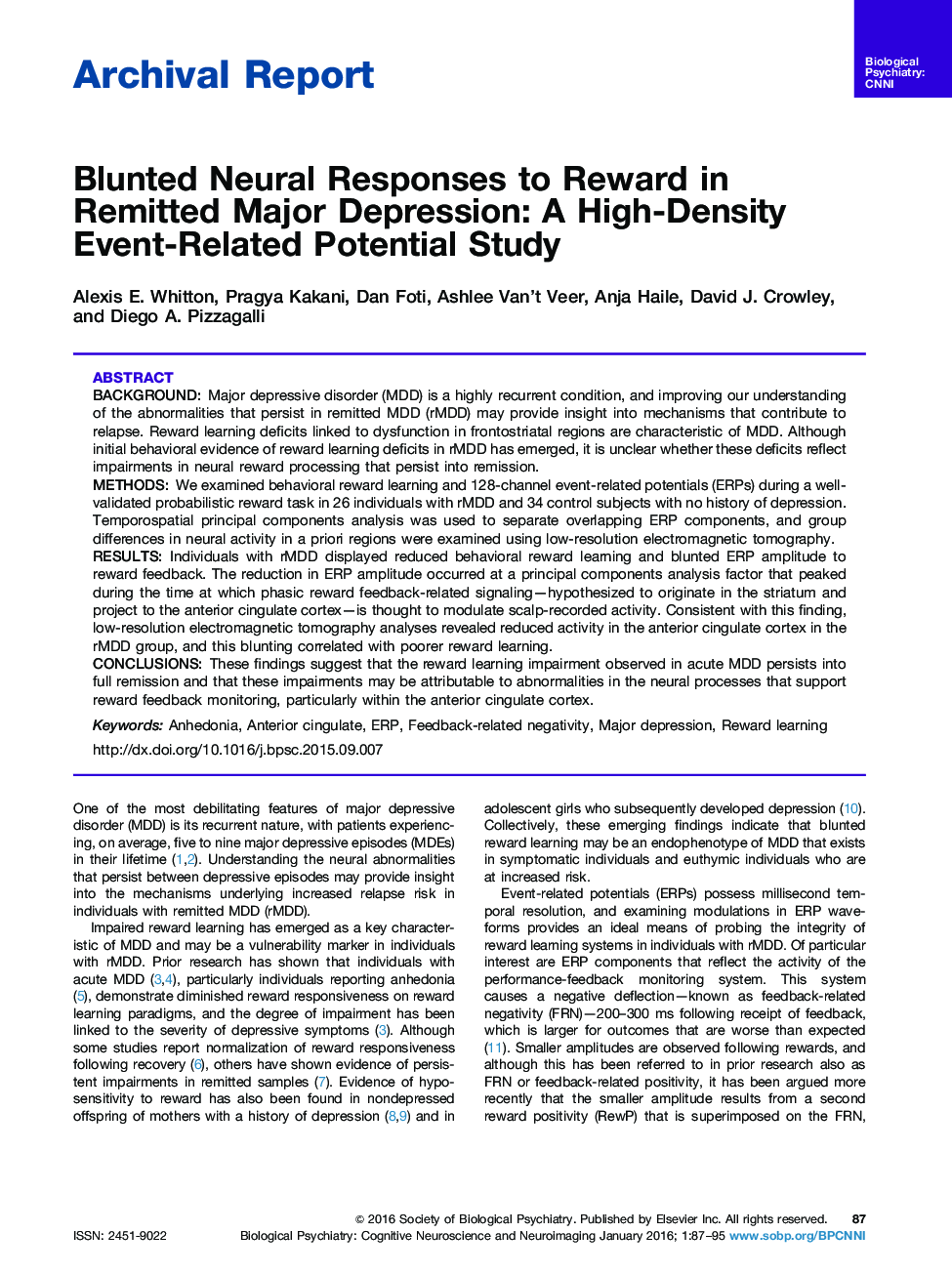| کد مقاله | کد نشریه | سال انتشار | مقاله انگلیسی | نسخه تمام متن |
|---|---|---|---|---|
| 4181391 | 1277110 | 2016 | 9 صفحه PDF | دانلود رایگان |
BackgroundMajor depressive disorder (MDD) is a highly recurrent condition, and improving our understanding of the abnormalities that persist in remitted MDD (rMDD) may provide insight into mechanisms that contribute to relapse. Reward learning deficits linked to dysfunction in frontostriatal regions are characteristic of MDD. Although initial behavioral evidence of reward learning deficits in rMDD has emerged, it is unclear whether these deficits reflect impairments in neural reward processing that persist into remission.MethodsWe examined behavioral reward learning and 128-channel event-related potentials (ERPs) during a well-validated probabilistic reward task in 26 individuals with rMDD and 34 control subjects with no history of depression. Temporospatial principal components analysis was used to separate overlapping ERP components, and group differences in neural activity in a priori regions were examined using low-resolution electromagnetic tomography.ResultsIndividuals with rMDD displayed reduced behavioral reward learning and blunted ERP amplitude to reward feedback. The reduction in ERP amplitude occurred at a principal components analysis factor that peaked during the time at which phasic reward feedback-related signaling—hypothesized to originate in the striatum and project to the anterior cingulate cortex—is thought to modulate scalp-recorded activity. Consistent with this finding, low-resolution electromagnetic tomography analyses revealed reduced activity in the anterior cingulate cortex in the rMDD group, and this blunting correlated with poorer reward learning.ConclusionsThese findings suggest that the reward learning impairment observed in acute MDD persists into full remission and that these impairments may be attributable to abnormalities in the neural processes that support reward feedback monitoring, particularly within the anterior cingulate cortex.
Journal: Biological Psychiatry: Cognitive Neuroscience and Neuroimaging - Volume 1, Issue 1, January 2016, Pages 87–95
